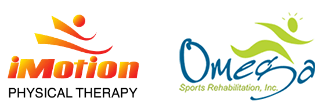Whether you know it as a stress headache or a tension headache, that vise-like feeling along your forehead can be excruciating. In fact, it just may have you gobbling prescription and OTC medications like candy. But if you’re suffering from frequent bouts of these stress headaches, overdoing it on meds can lead to rebound headaches and even more serious problems.
Instead, consider physical therapy to reduce the frequency and severity of your stress headaches. A physical therapist can help you address the underlying issues that may be causing them, from weakened muscles to poor posture.
Contact iMotion Physical Therapy today to learn more about how stress-related headaches can be helped by our dedicated team. Below are just some of the ways we can help you find relief.
How Do You Know if It’s a Stress Headache?
Obviously, more than one kind of headache exists, from migraine and sinus head pain to the infamous cluster headaches. Each type can be debilitating, but the best method for finding relief will depend on the type of headache you’re suffering from.
A cluster headache, for example, usually involves intense pain around one eye and the surrounding area, along with possible swelling and watery eyes. Sinus headaches, as the name implies, center on the sinus cavities around both eyes, cheeks and your nose, and involve intense pressure, especially when leaning over. A migraine headache comes with throbbing along one side of the head, with possible visual blurriness and nausea.
A tension headache, in contrast, will make itself known with a band of pain across your forehead, often continuing around the sides of your head and/or to the back of your head. This pain and pressure might also come with a feeling of heightened sensitivity on your shoulders, scalp and neck.
People with tension headaches might get them only periodically, or experience them more frequently. If you get them often, you likely suffer from chronic tension headaches. Technically, a chronic tension headache condition occurs more than 15 days a month, with each headache lasting at least an hour. But even “episodic” (non-chronic) tension headaches can affect your quality of life if you get them several times each month.
“Resist” Headaches Through Resistance Training
For many patients, stress headaches can be traced back to having weaker than average neck muscles, or to having a greater susceptibility to the kind of suffering that could be eased with strength training.
Studies show that, on average, people with this specific type of stress headache have less strength in their neck extension muscles than the average person. They also proved to have a reduced extension-flexion muscle movement ratio, in research conducted on stress headache patients.
Physical therapy works neck, shoulder and upper back muscles to build up strength in those areas. The goal is to strengthen these muscles enough to support your head without becoming overworked, which often contributes to stress headaches.
The exercises themselves are not taxing for most people. Depending on your area of weakness, the physical therapist might start you on chin-to-chest “nodding” workouts, which strengthens your neck. For upper back and shoulder strengthening, physical therapy might involve using hand weights and resistance bands.
Ease Into Relief
Massage is renowned for its ability to relax patients. For people with chronic stress headaches, physical therapy involving massage may ease a headache if you have one going into the session. More importantly, regular massage may also reduce the frequency and severity of tension-related headaches.
Muscle tension is eased during physical therapy massage, which takes the strain off your upper body. In addition, any compressed nerves that may be contributing to chronic headaches can also be addressed by an experienced physical therapist.
Along with deep-tissue massage, your physical therapist may also apply alternating heat and cold therapy, using simple tools like heating pads and ice packs. She may also employ devices like ultrasonic wands. This type of alternating hot and cold treatment reduces inflammation and knotted muscle problems.
Posture Perfection
When you slump, your shoulders, neck and back tend to compress the nerves within them. This can happen when your sitting, standing or walking. The act of slouching comes from a vicious cycle of not wanting to use the correct muscles for standing straight, which in turn weakens those muscles and makes it harder to sit or stand properly.
Physical therapy for stress-related headaches will likely include an assessment of your normal posture.
Your physical therapist may, in fact, determine that weakened muscles from the way you sit or stand are compressing your nerves and contributing to muscle strain. If so, strengthening moves for your core, back and neck will be incorporated. You’ll also learn techniques to help your body “remember” how to hold the correct positions for sitting, standing and walking.
Flexibility Fixes
Stiffened joints and tendons can lead to both emotional and physical tension, with a tension headache just one possible result. Boosting overall flexibility can not only help prevent serious injury, but reduce the likelihood of the type of headaches resulting from physical stress.
A physical therapist can help boost flexibility in your upper body areas. The more you are able to move those muscle groups freely, the less stress you will be putting on them.
Stretching moves will focus on opening up your chest, gaining more flexibility in your neck tendons, and extending range of motion in your shoulders and arms. Through physical therapy, you can learn how to do these moves safely during your sessions — without pushing your limits.
Your physical therapist will give you specific instructions for how to do these helpful stretches at home, so that you can retain and improve your flexibility both between sessions, and once you complete your course of physical therapy for tension headaches.
Is it Time for Physical Therapy?
A physical therapist may well be the key to helping you beat those tension headache blues.
Through a variety of physical therapy methods performed in our facility, as well as teaching you home techniques, you can reduce the frequency and severity of your stress-related headaches. Call iMotion Physical Therapy to set up a consultation with an experienced physical therapist.
Sources:
- https://www.mayoclinic.org/symptoms/headache/basics/causes/sym-20050800
- https://www.mayoclinic.org/diseases-conditions/tension-headache/diagnosis-treatment/drc-20353982
- https://headaches.org/2016/10/11/physical-therapy-headache/
- https://www.ncbi.nlm.nih.gov/pmc/articles/PMC4316547/
- https://www.medscape.com/viewarticle/844414#vp_1
Tags: headaches, Stress-Related Headaches, Stress Headaches, physical activity, Natural Treatment, Physical Therapy, Aches & Pains, physical therapist, physical fitness, health, fitness, Imotion Physical Therapy


